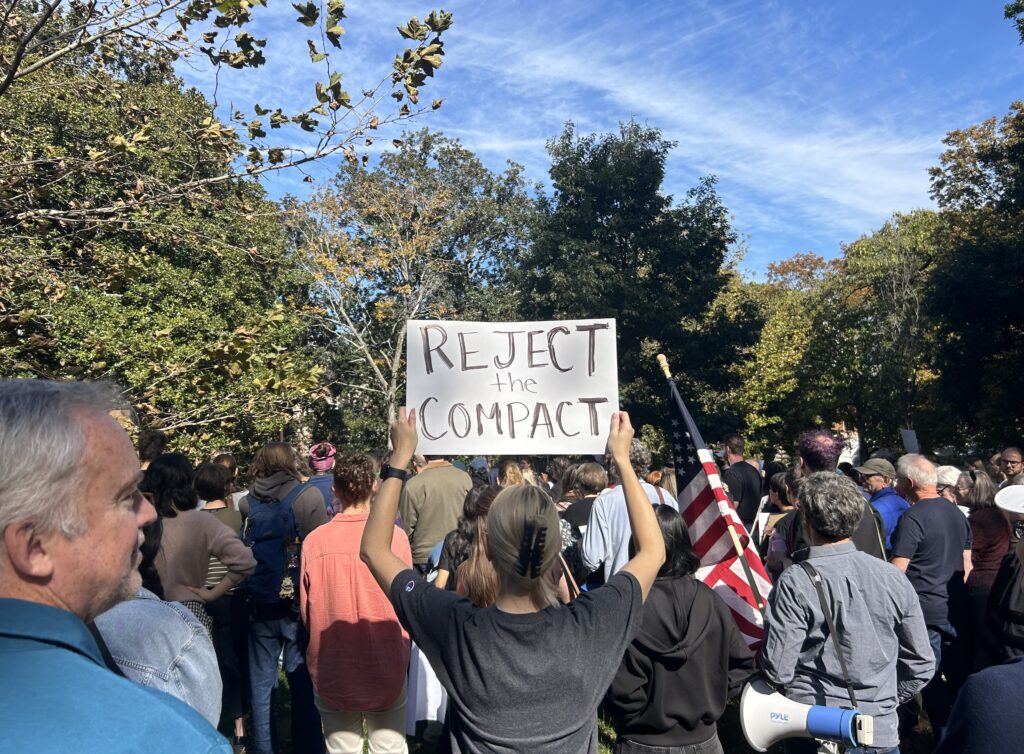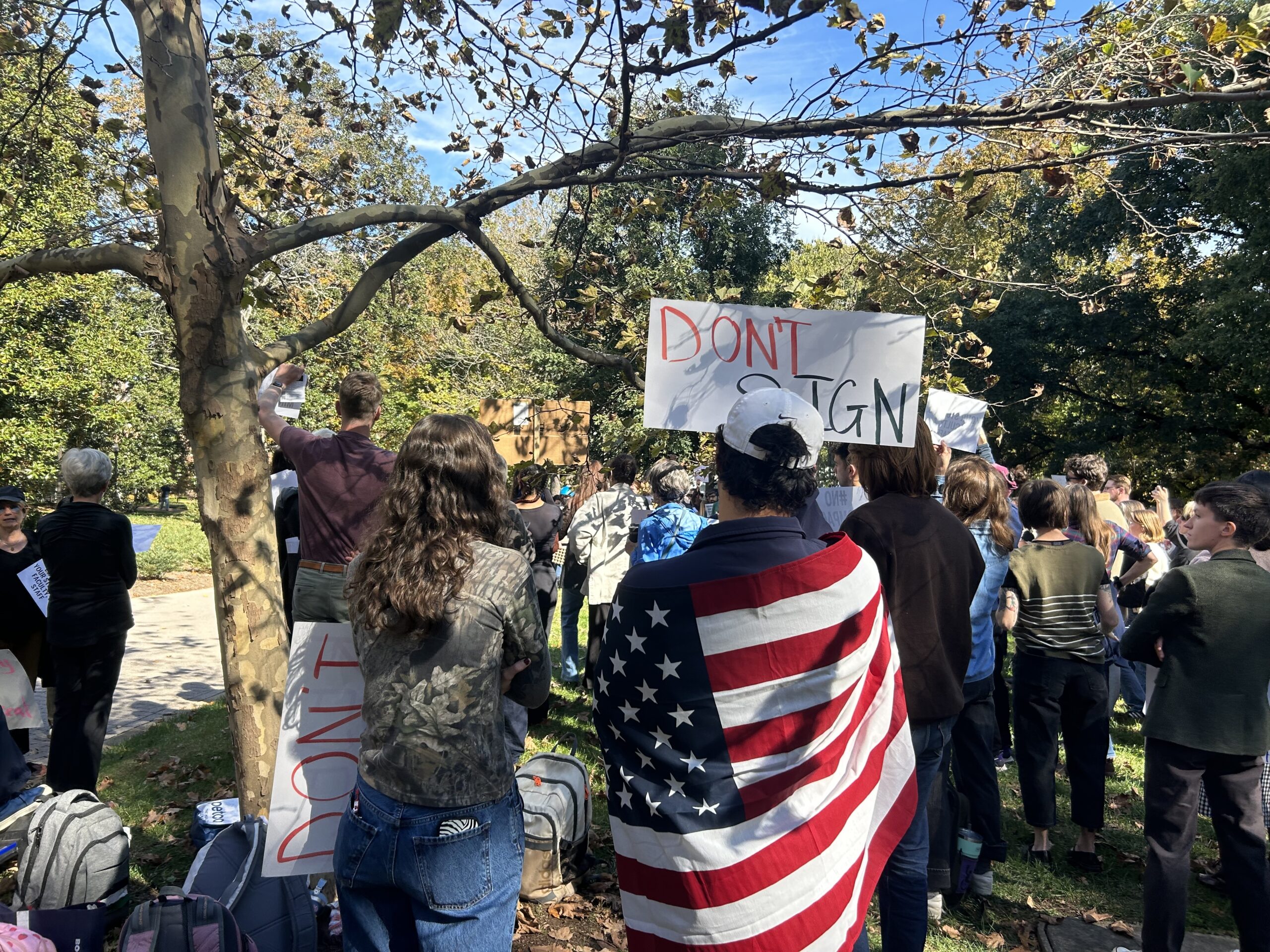
On Wednesday, more than three hundred students, professors, staff and community members with the Indivisible movement gathered on Vanderbilt University’s campus to demand that the university reject the Trump administration’s “Compact for Academic Excellence in Higher Education.”
Protestors held signs reading “Reject the Compact,” “Protect International Students,” and “Black and Gold, not Red Tape,” referring to the school’s colors. Some carried American flags, and at least two students came with laptops so they could participate while finishing up their school work.
The compact they are opposing promises universities preferential access to student loans, research funding and approval of student visas in exchange for compliance with a list of requirements, including:
- Enforcing a strict, binary definition of gender by only acknowledging the terms “male” and “female,” according to reproductive function
- Capping enrollment of foreign students at 15% of the student population
- Abolishing practices that “punish, belittle, and even spark violence against conservative ideas”
Vanderbilt has not signed the compact, but has agreed to “continued conversations” with the Trump administration. However, many worry that anything other than a firm rejection could compromise the institution’s academic independence.
Rebecca Allensworth is a professor at the Vanderbilt Law School. While she agrees with some of the ideas expressed in the compact, she believes that the compact itself is a threat to institutional neutrality and academic freedom.
“The independence of universities in America is one of the most important things that we have. It’s important to stand up against overreaches of government and we should be able to decide for ourselves what the priorities are and what changes we need to make,” she said.
Allensworth is teaching a class on contract law this semester, and included the “Compact for Academic Excellence in Higher Education” as an exercise for her students.
“I gave it to them as a hypothetical and I said, you know, if a school agreed to this and later tried to back out, what defenses would they have against it?”
Plenty of Vanderbilt students made their thoughts known at the protest, including sophomore Zofia Sante Hunter, who was one of the speakers. Hunter grew up in Nashville, and said she has always admired the university’s academic excellence and its achievements in medicine and science. But now, she said she’s deeply disappointed by the school’s refusal to take a stand.
“I feel, and several of my peers feel, a deep sense of betrayal. And I think numbers show that we are pissed,” she said, looking back at the crowd behind her.
 Rose Gilbert WPLN News
Rose Gilbert WPLN News Belmont junior Andrew Joseph joined the protest because he believes Vanderbilt’s response to the compact will “set the standard” for other Nashville colleges and universities.
A handful of students from Belmont University also joined the protest, including junior Andrew Joseph, who wore an American flag wrapped around his shoulders.
“I think that Vanderbilt kind of sets the status quo for a lot of colleges. They are one of the foremost colleges here in Nashville, and what they do is important,” said Andrew Joseph, “Belmont, Lipscomb, we’ve been fortunate enough to have not been directly targeted in this manner like Vanderbilt has. But if that were to happen, we want to make it clear that Nashville colleges are going to stand strong against [this compact].”
Following the protest, a Vanderbilt spokesperson released the following statement:
“We believe free expression and constructive debate are essential to a university’s mission of transformative education and pathbreaking discovery. Members of our community continue to share their thoughts and ideas, which help to inform continued conversation with leaders in government and higher education to restore trust in America’s great research universities.”
Update: This story was updated to reflect a larger total turnout.

